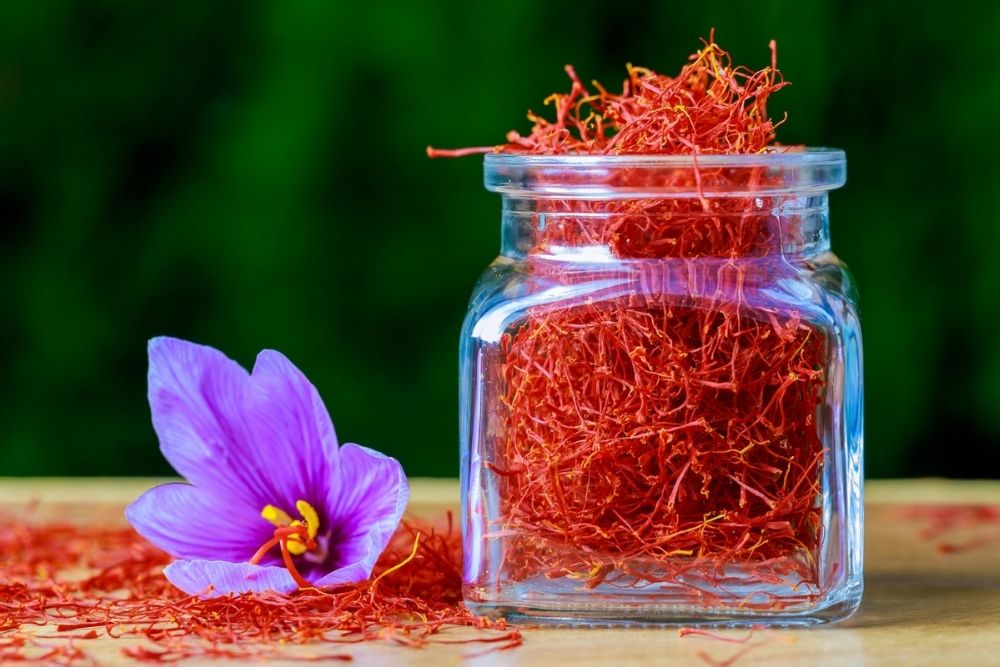Saffron is an exotic spice native to Southern Europe, but widely used in many cultures around the world for cooking and medicinal purposes. In the kitchen, saffron (Crocus sativus) is used to add vibrant golden color and a sweet, floral and almost nutty flavor to a wide variety of cuisine. Medicinally, saffron contains several botanical compounds that encourage healthy digestion, fight inflammation, and support cognitive function.
In medicine, extracts and tinctures of saffron have been used therapeutically to address many different health concerns, such as:
- Balancing blood sugar
- Calming the nervous system
- Supporting brain health
- Supporting cardiovascular health
- Easing digestive distress
- Supporting vision health
Saffron contains several nutrients known to support health, including:
- Carotenoids
- Calcium
- Iron
- Magnesium
- Manganese
- Potassium
- Selenium
- Zinc
The carotenoids in saffron are important antioxidants that help protect the cells in the body from cancers, infections, and attacks on the immune system.
Minerals that are found in saffron are important to physiological processes that take place in the nervous, cardiovascular, muscular, immune, and digestive systems. Our bodies use the minerals manganese and copper as cofactors (“helper molecules”) to facilitate the production of antioxidants. Iron is essential for red blood cell production and zinc supports a healthy immune system.
In addition to the robust mineral profile, saffron contains many vitamins including vitamin A, folic acid, riboflavin, niacin, and vitamin C–all of which support optimum health.
Because saffron is very pricey, it is a target for fraud (aka saffron adulteration). There are unethical practices in which less important parts of the saffron plant, minerals, artificial colorant, weight agents, animal substances, and artificial substances are used. Use a reliable source to obtain only the highest quality saffron.
Saffron is not recommended for use during pregnancy or lactation. Drug interactions are possible with any herb, so it is important to speak to a holistic healthcare provider before taking herbs with other medicines or supplements.
Resources
Stanford Healthcare. “Nutrition to Reduce Cancer Risk.” https://stanfordhealthcare.org/medical-clinics/cancer-nutrition-services/reducing-cancer-risk/phytochemicals.html
NutritionandYou.com. “Saffron.” https://www.nutrition-and-you.com/saffron.html
Gohari, A. R., et al. “An overview on saffron, phytochemicals, and medicinal properties.” Pharmacognosy reviews vol. 7,13 (2013): 61-6. doi:10.4103/0973-7847.112850

